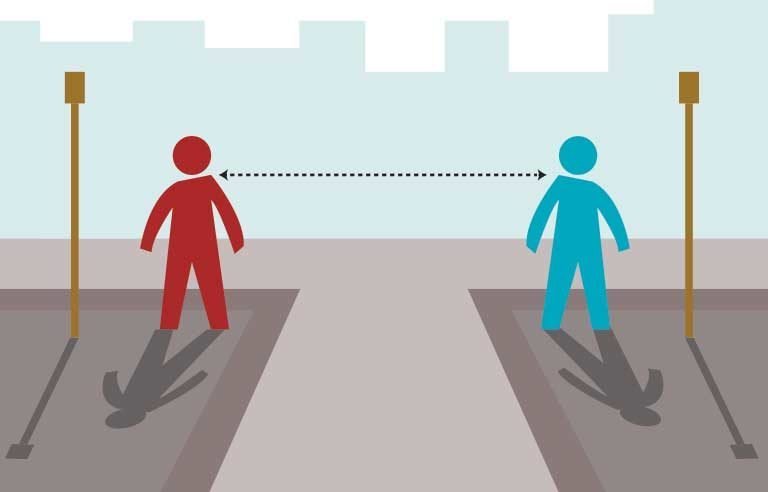In North India, the monsoon season provides a reprieve from the blistering summer heat, but it also presents unique concerns for eye health. Heavy rains, high humidity, and waterborne illnesses can all harm your eyes. It is critical to take preventive measures for monsoon eye care to keep your eyes healthy and vibrant during this rainy season. In this blog post, we’ll look at some practical ways to safeguard your eyes during the rainy season in North India.
Keep Your Hands and Eyes Clean
During the monsoon season, your eyes are vulnerable to infections primarily caused by touching your face with dirty hands. Make it a practice to wash your hands with soap and water frequently to prevent the transmission of germs. Furthermore, avoid rubbing your eyes with dirty hands since this can cause discomfort and infection.
Use Protective Eyewear
If it’s raining hard, you should wear glasses that are waterproof or can fight water. These will protect your eyes from raindrops, mud splatters, and any other pollution that come from rain. Polarized shades can also cut down on glare and make it easier to see on cloudy days. During the monsoon season, it’s not a good idea to wear contact lenses because they can trap water and dirt, which can be uncomfortable and even cause illness. Instead, choose glasses during this time because they are safer and more convenient.
Maintain Proper Hygiene for Eyeglasses
If you wear glasses, ensure they are always clean and dry. Use a microfiber cloth to wipe away moisture and any smudges regularly. Dirty glasses can obstruct vision and increase the risk of eye infections.
Stay Hydrated
The increased humidity during the monsoon can cause dehydration, leading to dry eyes. Increase water intake to stay hydrated and moisten your eyes. This will help reduce discomfort and irritation.
Avoid Water into Eyes
While enjoying the rain or a swim may be tempting, one should avoid splashing water directly into your eyes. Rainwater may contain various pollutants and microorganisms that can cause eye infections.
Use Lubricating Eye Drops or Artificial Tears
If you have dryness or irritation in your eyes, consider using preservative-free lubricating eye drops or artificial tears. These drops might provide short relief while also keeping your eyes hydrated.
Maintain Indoor Air Quality
Staying indoors during heavy rain is common, but ensure the indoor air is clean and well-ventilated. Indoor air pollutants can exacerbate eye irritation and allergies.
Maintain Social Distancing and Safety Precautions

During the monsoon season, waterborne infections like conjunctivitis (pink eye) can spread rapidly. It’s crucial to maintain social distancing and adhere to safety advisories to minimize the potential spread of eye viral infections.
Visit an Eye Specialist if warranted
If you experience persistent eye irritation, redness, pain, or any other concerning symptoms, consult an eye specialist promptly. Early diagnosis and treatment can prevent potential complications and ensure the best care for your eyes.
Avoid Using Expired Eye Drops
If you use eye drops or medications for eye conditions, check the expiration date before using them. Using expired products may not provide the intended relief and can even lead to adverse reactions
Limit Screen Time
People spend more time on digital devices, and during the rainy season, they are more likely to stay inside. Long hours in front of a screen can cause digital eye strain, which is marked by dry eyes, headaches, and blurry vision. Follow the rule of 20-20-20: Suggesting to take a break every 20 minutes of work, look at something 20 feet away for 20 seconds to give your eyes a break.
Shield Your Eyes from Strong Winds
Monsoon days with a lot of wind can be hard on your eyes. When going outside in strong winds, cover your eyes with wide-brimmed hats or umbrellas to keep dust and other things that can bother your eyes from getting in them.
Get Plenty of Sleep
Much like other body parts, your eyes require Adequate sleep During the monsoon season, the gloomy weather might tempt you to stay late or sleep in. However, aim for 7-8 hours of quality sleep each night to allow your eyes to rest and recover.
Blog Summary For Monsoon Eye Care
North India’s monsoon season brings unique challenges for eye care. Still, with these practical tips, you can safeguard your eyes and enjoy the beauty of the rainy season without compromising your eye health. Eyestrain is common on rainy days due to the constant wind. Safeguard your eyes from flying dust and debris by using a wide-brimmed hat or an umbrella whenever you go outside in windy conditions. By being proactive and attentive, you can ensure your eyes remain healthy and vibrant all year round. Stay safe, keep your eyes protected, and enjoy the magic of the monsoon season!

